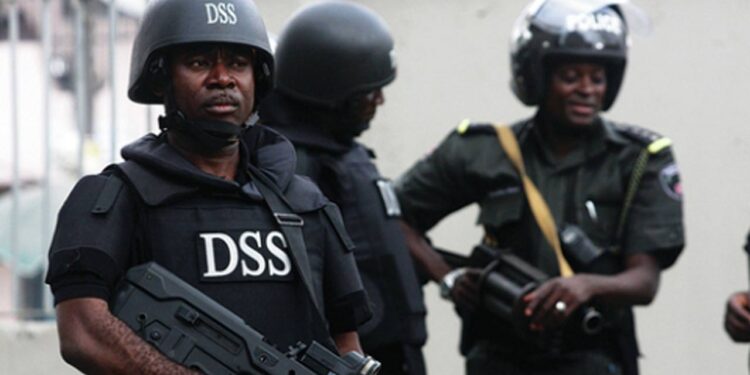The Department of State Services (DSS) has provided clarification on the recent visit by its operatives to the Abuja office of the Socio-Economic Rights and Accountability Project (SERAP), stating that the action was lawful and not an act of harassment.
In a statement released on its website on Tuesday, the DSS addressed the reports that alleged a raid on SERAP’s office, explaining that the visit was part of a routine investigation. The agency emphasized that its actions were misrepresented as harassment and intimidation by some media outlets.
The statement read: “The Department of State Services has received numerous inquiries regarding the alleged unlawful invasion of SERAP offices in Abuja and Lagos. This narrative is false and misleading. Two unarmed DSS officers were officially dispatched to SERAP’s Abuja office for a lawful routine investigation, which has unfortunately been misconstrued as illegal and as an act of intimidation.”
The DSS further stated that such routine visits and inquiries are a normal part of its operations and should not be interpreted as a raid or unlawful activity. It reassured the public of its commitment to professionalism and urged citizens to disregard the inaccurate reports.
The controversy arose after SERAP accused the DSS of invading its office and intimidating its staff, calling on President Bola Tinubu to intervene. In a statement issued by Deputy Director Kolawole Oluwadare, SERAP condemned the DSS’s actions and demanded that the agency stop what it called harassment and threats of arrest against its directors.
SERAP’s statement read: “The invasion of our Abuja office by the DSS and the harassment of our staff is an attack on the human rights community. We urge the Tinubu administration to instruct the DSS to cease its actions against SERAP and allow us to perform our work freely, in accordance with national and international human rights laws.”
The organization further expressed concern over what it described as a growing crackdown on human rights defenders and civil society groups in Nigeria, calling on authorities to ensure the protection of such organizations in line with the Nigerian Constitution and international treaties.
























